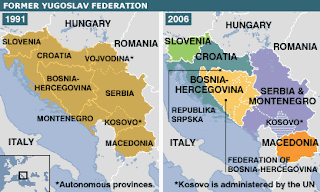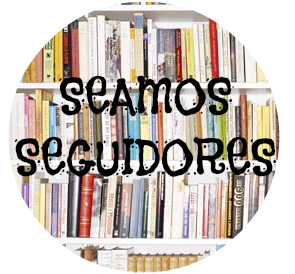There are two reasaons why I've decided to talk at our book club about Dubravka Ugrešić:
1. Most of her books refer to the situation of ex-Yugoslavian refugees during/after the war and I believe this topic couldn't be more important and relevant considering the situation of many countries today.
2. She was one of the authors invited to participate in Chejov vs. Shakespeare organized y Donostia 2016: an action of exchanging letters etween the local authors and those from foreign countries. She partnered with Harkaitz Cano, who personally chose her because of his admiration for her work and her specific sense of humor when analysing critically current situation in Europe.
Dubravka
Ugrešić is Yugoslavian. When the country of Yugoslavia dissolved,
she was robbed of her national identity and forced to become a
Croatian because Zagreb was her home. Choices had to be made and to
understand those, one has to understand the Balkans war, the war
in the former Yugoslavia between 1991 and 1999. If you are interested in a quick history lesson, please go to:
In 6 easy to understand points they summarise the Yugoslavian conflict.
 |
| Graphic from: http://news.bbc.co.uk/2/hi/europe/4997380.stm |
 |
| Dubravka at 5 and 6 years old |
 |
| Varna, Bulgaria |
 |
| 1968 |
- the language (English vs. Croatian: "Language was our common trauma," says Tanja. "Language was a weapon, after all: it branded, it betrayed, it separated and united.", while one of students notices: "in other languages children sleep the sleep of the just and in mine they sleep the sleep of the butchered");
- refugees - displacement ("A love story ends with marriage," Tanja says, "the exile's when he acquires a passport from another country.")
- guilt (curiously, only the war criminals have the luxury of feeling no guilt)
- nostalgia (in this case Yugonostalgia)
Dubravka
Ugresic was born in 1949 in Kustina, a small industrial town near
Zagreb. Her father, Nikola, was a Croat, and her mother, Elisaveta,
Bulgarian. Her father, a teenage anti-Nazi partisan in the second
world war, became the successful director of a factory processing
petroleum products.
What she remebers about her childhood sounds quite idyllic:
We lived in a little house. My father ran a factory, which was an almost inseparable part of our family life, because the workers would often come to our house to meet with my father. We lived in model family houses, which were built as an example of what a socialist worker’s home should look like. There were five or six small houses with vegetable gardens in the back and small flower gardens in the front. Our neighbors were workers, and they would accompany us on outings, celebrations, vacations on the Adriatic coast (at so-called “socialist workers’ resorts”). Life was a sort of collective paradise, where, at least at the beginning, images of everyday life matched the images in my first socialist primer, which consisted of workers, peasants, and the “intelligentsia” building their “bright future” together.
But the freeze on Yugoslav-Soviet bloc relations
after Tito's break with Stalin in 1948 meant the family was unable to
visit her maternal grandparents in Varna, on Bulgaria's Black Sea
coast, until the thaw of 1956. Ugresic thinks Yugoslavia's socialism
was relatively benign, especially in its permissiveness about foreign
travel and Hollywood movies.
We first visited my Bulgarian grandparents—they lived in Varna, by the Black Sea—when I was seven years old. This was immediately after diplomatic relations between Bulgaria and Yugoslavia were restored. My mother and I traveled to Varna and stayed there for two months. I was completely unfamiliar with that strange new family constellation, but I learned Bulgarian with ease. My mother hadn’t seen her parents for ten years because of Informbiro, which excluded Yugoslavia from the Eastern Bloc established by the Soviets. Being a Bulgarian in Yugoslavia in 1948 was equivalent to being a Serb in Croatia—or a Croat in Serbia, or a Bosnian in either Serbia or Croatia—in 1991. As a child, I couldn’t understand any of that stuff. However, I do recall an exchange with a boy my age from our first stay in Bulgaria. He said: “That Tito of yours is a capitalist pig.” And I replied: “That Stalin of yours is a pig.
After
studying comparative literature at Zagreb university, she spent a
research year in Moscow in the mid-1970s, helping to unearth and
translate Soviet avant-garde writers of the 1920s and 30s, whom she
later anthologised. It was a "totally romantic time", yet
the encounter with Soviet communism also opened her eyes to abuses in
Yugoslavia. From 1949 to 1956, hundreds of people suspected of
pro-Stalinist loyalties were sent to Goli Otok, the "Yugoslav
gulag". "It was a culture of lies," Ugresic says.
"Goli Otok was taboo; people refused to talk about it until the
1970s."
Her first literary creations were directed to children.
I began as a children’s writer. During the late seventies, the standards of literature for children in Yugoslavia were exceptionally high. Belgrade poet Dušan Radović set the highest aesthetic bar with this kind of writing. Then other young and talented writers followed his example. Their enthusiasm influenced people involved in television as well as publishers and artists. Suddenly great books for children started to appear alongside intelligent, even experimental, magazines and radio programs. All in all, I was absolutely enchanted by these new tendencies in children’s literature and I wanted to be a part of it. That seemed to me a better and more authentic choice then imitating Borges, which is what the majority of writers of my generation were doing at the time.
But she quite quicky understood what is her personal work ethic and which topics are the most important for her.
I think that the notion of a literary work ethic is extremely important, especially today when practically anybody can write, produce, and distribute his or her own work. This work ethic presupposes knowledge and a deep respect toward—and compassion for—your ancestors and contemporaries, toward your trade. It also assumes a deep awareness of what one is doing, why one is doing what one is doing, what the sense of the work is, what it brings to the cultural context, what it brings to the reader, and so on and so forth.
Ugresic
was teaching at Zagreb university when war broke out in 1991. After
an autumn spent in bomb shelters, she taught for a semester in
Connecticut, and wrote Have a Nice Day: From the Balkan War to the
American Dream (1993). Its vignettes skewer American consumerism
through the eyes of a woman whose homeland is disintegrating. War,
she writes, "is radiation. And we are all contaminated."
She
was one of five women subjected to what she sees as a media witchhunt
in Croatia: four of them still live abroad. "It's a pattern in
war," she says. "The first enemy is a woman." Besides
"nasty" attacks in parliament and the press, her mother
received harassing phone calls ("being Bulgarian was almost like
being Serb"). "What saved me was that I was not anonymous,"
says Ugresic. "Many who were less known were beaten or killed."
She was also ostracised by academic colleagues: "A funny human
ballet was performed every day; they'd not notice or greet me. They
performed that for one year, then I left."
Five Witches of Croatia, the feminist writers and intellectuals accused in mainstream Croatian media of being witches for their outspoken criticism of the nationalist Croatian state in the wake of communism.
In Slav tradition, the word vještica or veštica (meaning “witch”) is used as a derogatory term for women who do not fit the mold of ideal women—or who are “conniving, ill-intentioned, bitter, secretive, and odd.”1
As Meredith Tax chronicled in the May 1993 issue of The Nation shortly after the accusations took place, the Croatian weekly Globus ran a story titled “Croatia’s Feminists Rape Croatia!” The five “witches,” as they were called in the story (Slavenka Drakulić, Rada Iveković, Vesna Kesić, Jelena Lovrić and Dubravka Ugresić) had “raped” Croatia by supposedly suppressing information about Serbian rape camps, and if they wrote about the rapes (as two of the writers did) they had had the audacity to frame these crimes as crimes of men against women, not Serbs against Croatians.
She
was struck by how quickly people did the job of censorship. "There
was such hysteria and lying, pushing people into hatred. My fellow
writers spat on their own history. But why should you wipe out half
your life because a bunch of criminals go to war to separate the
country? When one guy comes to power, others are erased.
This
is anti-intellectual - to always destroy everything behind you."
One casualty was language. Serbo-Croat was "separated into
Croatian, Serbian and Bosnian, which is tragic when you're the bearer
of a language that's split, tortured."
Yes, in 1991 (officially, though, it started earlier) my cultural environment split into six new cultural environments (with the same pattern of cultural behavior based on ethnic hatred and exclusion and denial of a common Yugoslav cultural past). This was the year when the authorities took away my Yugoslav passport, gave me a Croatian one in return, and from then on everybody expected me to behave as a “Croatian writer.”
She now has Dutch citizenship, but still writes in Croatian, not because she thinks the mother tongue is holy or romantic, but because it's the easiest language for her to express herself in. No longer labelled an enemy, she is "published quietly" in Zagreb and Belgrade. "I know I have devoted readers there," she says, but even if the rhetoric has softened with Croatia's EU aspirations, "all those who declared me a traitor are still in power, still part of the cultural life."
I left Croatia, I left my job -- I worked for twenty years at the university -- spontaneously. I was so angry and so offended and so desperate that I simply quit my job and I left the country, not knowing what would happen. I did that at an age where normal people don't do that. Normal people, they think: 'How should I retire in ten years ?' They don't think about exile. It is true that when I self-catapulted that I landed somehow softly, because what was waiting for me in a few months was a grant in Berlin, a DAAD grant for the writers and so on.
First I was in Berlin, then I was in the States, then I was invited to spend the year in Amsterdam. By that time I got quite tired of traveling and renting places and not knowing, so I thought maybe I should at least keep the place I am renting, as a kind of a permanent, more stable address. Then I went back to Germany and then I went back to the United States and in 1999 when I came back to Amsterdam I simply was so tired and somehow desperate of all of that that I thought maybe I should make this town my home. So that is why.
These are exactly the experiences that are ehind so many of her novels, among others. "The Misnistry of Pain" (2004).
As The Guardian has summarised:
The Ministry of Pain is a brave, accomplished, cultured novel, sombre and witty. It is the story of just such an exile, Tanja Ucic, who leaves Zagreb in dismay and confusion and finds herself teaching the languages and literature of her "former Yugoslavia" at a university in Amsterdam, living in a subterranean flat on the edge of the red-light district. "I was, naturally, well aware of the absurdity of my situation: I was to teach a subject that no longer officially existed. What we called jugoslavistika at the university - that is, Slovene, Croatian, Bosnian, Serbian, Montenegrin and Macedonian literature - had disappeared as a discipline together with its country of origin.The narrator of this story is a professor of literature, Tanja Lucić, who has fled her native Croatia and now teaches a class of Yugoslav exiles at the University of Amsterdam. Still coping with her own feelings of loss and problems of her new adjustment, the professor decides to let the class indulge in Yugonostalgia rather than study literature. When one of the students submits an anonymous complaint to her department head she angrily returns to the syllabus, much to the disappointment of most of the students. At the end of the semester, she issues a failing grade to the student she suspects of complaining. In a moment that stands alone in Ugrešić’s fiction and, even her essays, there is a confrontation between the professor and the student that is filled with great anger and a surprising moment of violence.
"The Ministry of Pain" gets its title from a Dutch sex shop. Toward the end, the plot steers into quite unexpected and not entirely welcome psychosexual melodrama, as Tanja enjoys a sadomasochistic encounter with Igor, the failed student.
The main topics here are:
Another
of the most engaging and moving aspects of the novel comes,
ironically, in the actual essays by Tanja’s students. They write
about “the homely terrain of the day-to-day life we had shared in
Yugoslavia”: the cheap red, white, and blue striped carryall bags;
a monthly shopping trip for fresh coffee beans and chocolate wafers;
a favorite comic strip; tea dances; a recipe for Bosnian hotpot; a
Macedonian poem, a photograph of Tito—all the relics of peace that
these “anonymous Yugos” have lost, along with their country and
the unity of their language. Instead, they’ve acquired a profound
and permanent sense of horror, along with an uncontrollable desire to
wound and curse the world.
It is a novel about "self-hatred,
self-hurt part of post-traumatic conditions"; it is a novel
about "the trauma of language and the language of trauma."















Comentarios
Publicar un comentario